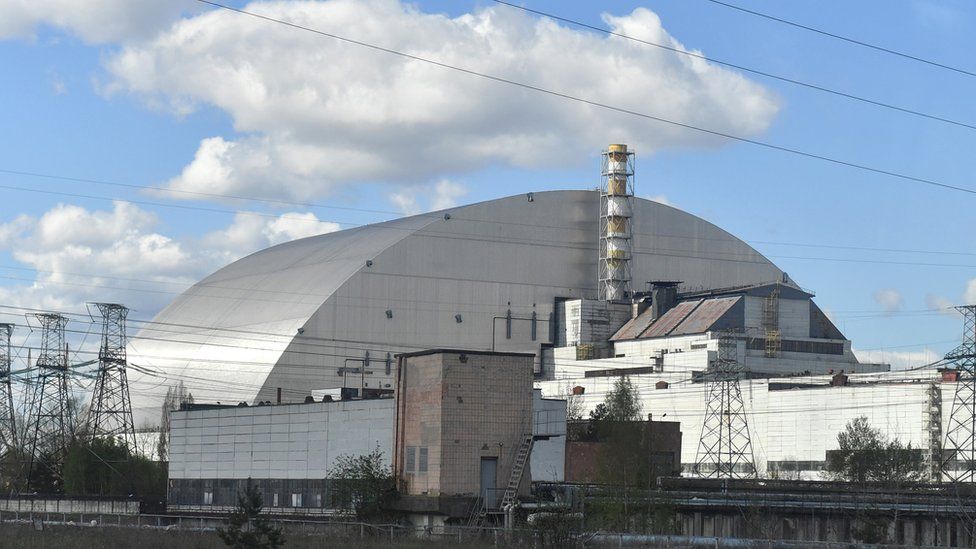BBC
March 9, 2022
-BBC
Power has been cut off from the former nuclear power plant at Chernobyl, Ukraine’s state energy company has said.
Ukrenergo blamed the outage on actions by Russian troops who seized Chernobyl nearly two weeks ago.
The company said the conflict meant it could not restore power at Chernobyl – site of the world’s worst nuclear accident in 1986.
The head of the UN nuclear watchdog said the outage did not impact safety.
Although no longer a working power station, Chernobyl was never fully abandoned and still requires constant management.
Spent nuclear fuel is cooled at the site.
Rafael Grossi, director-general of the UN watchdog, the International Atomic Energy Agency (IAEA), said that even without an electrical supply, the spent nuclear fuel would not heat up sufficiently to cause an accident.
The acting head of the Chernobyl nuclear plant, Valeriy Seyda told the BBC the generators had enough fuel to power the site for 48 hours.
The IAEA said it was concerned about staff at the site working under Russian guard who had in effect been stuck there for 14 days, with no prospect of relief by co-workers.
Ukraine’s energy minister, German Galushchenko, said the staff would now be “mentally exhausted”, adding that protecting Ukraine’s nuclear plants should be a priority “for the EU, the world, and not just for Ukraine”.
Mr Galushchenko told the BBC that the Ukrainian authorities wanted to restore the power supply as quickly as possible.
“Closing the sky” or providing a mission from the United Nations, European Union or Organisation for Economic Co-operation and Development would ensure the safety of Chernobyl and other Ukrainian nuclear sites, he added.
The Ukrainian atomic energy company Energoatom has said the loss of power supply at the Chernobyl nuclear power plant could lead to the release of radioactive substances into the air which could spread into the wider environment.
The power is needed to keep 20,000 spent fuel rods cool by circulating water through tanks in the nuclear fuel storage facility near reactors 1 and 3.
There are back-up generators able to do this for a few days. If the main power is not brought back online then there is no risk of an explosion, but the water will begin to gradually evaporate and the vapour may well be radioactive, since it can contain material leached from inside the fuel rods.
But any such vapour should be kept within the building, according to Professor Claire Corkhill of the University of Sheffield, who is familiar with the plant.
“I don’t think this would lead to a release of radioactivity because it would take a very long time for the water to eventually evaporate. The spent fuel is kept in a modern building which should be sealed and have structural integrity,” she said.
Prof Corkhill added that while it would be hazardous for people to enter the facility but very little if any radiation is likely to leak outside.
The IAEA said radiation levels were normal at Ukraine’s operational nuclear power plants – including Europe’s biggest, Zaporizhzhya, which was seized by Russia last week.




